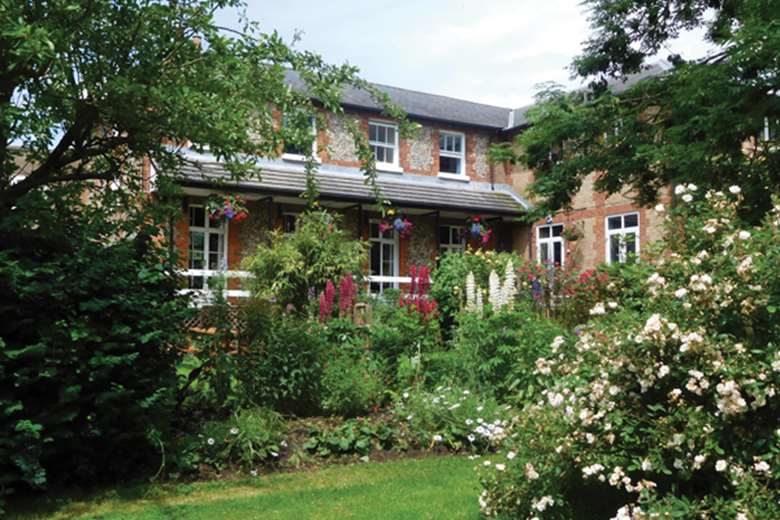‘Why Wouldn’t You Have a Circle?’ An Evaluation of the Glebe House Circles Pilot
Jonathan Stanley, principal partner, NCERCC
Tuesday, October 27, 2020
This report is about a recent development at Glebe House: the ambition to provide Circles of Support and Accountability (Circles) for young men moving on from the residential programme.

Title: ‘Why Wouldn’t You Have a Circle?’ An Evaluation of the Glebe House Circles Pilot
Published by: FTC Trust (July 2018 )
A Circle comprises a core member (the ex-resident) and a group of local community volunteers. The purpose of the Circle is to provide the core member with a supportive social network that enables successful re-integration into the community while managing the risk of further sexually harmful behaviour.
The impetus for the development of Circles at Glebe House comes from the desire of trustees and staff that residents move on from the programme in a positive and well-supported way.
The good relationships that young men built with transitions staff at Glebe House were sustained in the community. Transitions staff have a thorough knowledge of the young men and approach their work with flexibility, imagination, good humour and care.
The study identifies the merits of Circles for ex-residents, highlights some options for developing the transitions work, and suggests ways of building on previous research.
Glebe House is an independent children’s home run by a Quaker charitable trust. It operates as a therapeutic community for young men, typically 16-19, with needs related to sexually harmful behaviour. It is as close to the definitions of therapeutic community for young people as exists in England with its emphasis on the community meeting three times a day and acting as a major orientation.
The research is a longitudinal study 2002–14. Such evaluation over a long period is rare. Recent evaluations as funded by the Department for Education have been for short periods of two years, inviting the observation that the initial phase is often positive and there needs to be longer term research.
The research took the focus of any reduction in the type and extent of problems identified on the young men’s arrival; any key lifestyle changes after leaving; and any reduction/cessation of their sexually harmful behaviour thereafter.
Semi-structured interviews with young men, staff and other professionals, case records, and re/conviction data was studied. There was a comparison group, another often absent aspect of children’s social care research.
Almost all of the young men’s upbringing had neglect or abuse present. There were mental health, post-traumatic and dissociative states reported but often not formally diagnosed. This latter point is important when considering research and the causality of behaviour.
Many of the young men had the greater proportion of their lives in care and had experienced frequent placement and educational disruption. Learning disability was noted in many. Glebe House has incrementally integrated educational provision into its daily life.
The sexually harmful behaviour, some serious, was mainly within their own families, placements or schools.
The Glebe House community is not always able to support a young man all the way through a stay; some left early as a result of offending or unacceptable behaviour. The more serious the behaviour or offending the greater the likelihood of not completing the programme.
Sexual recidivism among this group of programme “drop-outs” was proportionately greater (eleven-fold) than among the programme completers.
Study findings
Based on a checklist administered on arrival and departure, the majority show a significant reduction or cessation of their highest-ranked problems by the end of their placement, including self-harm, suicidal thoughts, depression, reactions to bereavement and loss, and their own experiences of abuse and neglect. None of them was in denial about their own previous sexually harmful behaviour.
There were very high scores in respect of all aspects of life at Glebe House. Staff job satisfaction was evaluated as high, one-to-one therapy, group work, education, sport and work experiences, and support with family contact were all highly praised. Contact with social workers and youth justice staff was generally appreciated, though a minority had felt ill-served and let down at times.
Ministry of Justice reconviction rates showed considerably greater recorded criminal activity among the comparative control group – 44 per cent – than for Glebe House young men, 16 per cent. Only one Glebe House young man had a reconviction for a sex offence and one for a violent (non-sex) offence, as against five each from the control group.
Post-leaving interviews, and telephone interviews with their involved professionals, revealed a need for more preparation by Glebe House for specific elements of budgeting, employment and parenting. Overall, however, though only a minority were in employment at final interview, most young men and professionals alike felt that in other key areas, such as accommodation, family relationships and healthy lifestyles, Glebe House had given them the tools for future resilience.
There is longitudinal and complementary qualitative and quantitative data contained in this research that can support a claim of considerable robustness of method and reliability of findings. In particular, the study has been able to demonstrate that positive change has followed for the majority of those respondents who completed the therapeutic programme. Not only were most of them not reconvicted, as against a considerably higher-convicted comparison group, the majority also felt their lives had been turned around by the two or more years they had spent at Glebe House and by the commitment of staff.




